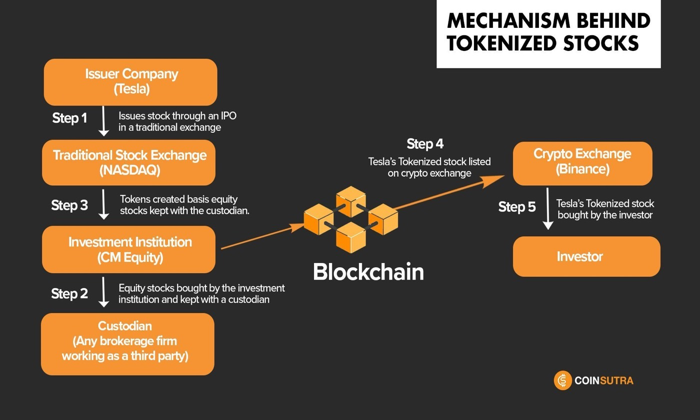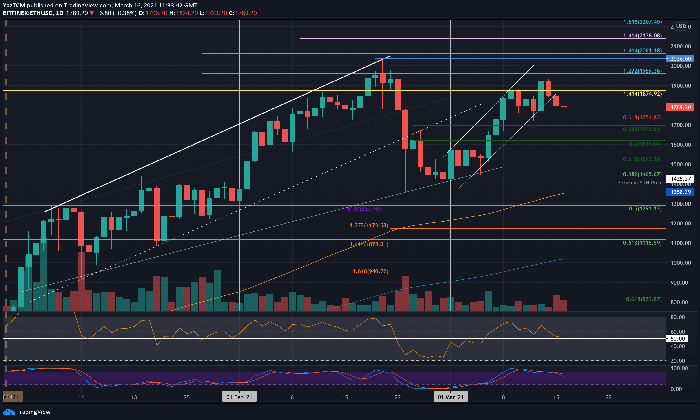The recent Coinbase data breach has sent shockwaves through the cryptocurrency community, raising significant concerns about Coinbase security and user data protection. Reports indicate that the personal accounts of high-profile users, including Sequoia Capital’s Roelof Botha, were compromised through a sophisticated social engineering scheme involving bribed support agents. This alarming breach not only highlights vulnerabilities in crypto exchanges but also underscores the growing threat of cryptocurrency cybercrime. Estimates suggest that personal information from numerous users may have been stolen, sparking fears of potential identity theft and financial loss. As Coinbase navigates this crisis, the implications for investor trust and the overall security landscape in digital currency platforms remain uncertain.
In light of the recent events, the Coinbase data breach has ignited discussions about the risks associated with digital asset management and the fortification of user privacy measures within the industry. This incident exemplifies the rising trends in cyber attacks targeting online platforms, where unscrupulous hackers exploit weaknesses in security protocols to access sensitive client information. As the cryptocurrency sector grapples with these challenges, the need for robust protection against malicious threats has never been more critical. The involvement of notable figures, such as Sequoia Capital’s Roelof Botha, only heightens the urgency for enhanced safeguarding strategies against digital vulnerabilities. With the threat landscape constantly evolving, the necessity for innovative security solutions is paramount for sustaining user confidence in the cryptocurrency ecosystem.
Overview of the Coinbase Data Breach
The recent Coinbase data breach has raised significant concerns regarding user data protection in the cryptocurrency sector. Affected users, including prominent figures such as Roelof Botha from Sequoia Capital, found their sensitive information exposed after cybercriminals implemented social engineering tactics to compromise accounts. The thieves reportedly bribed support agents at Coinbase, which illustrates a deeply troubling vulnerability in user security protocols and highlights the pressing need for enhanced safeguarding measures against such attacks.
Coinbase’s acknowledgment of the breach, communicated via a blog post on May 15, emphasized the serious nature of the situation. The exchange reported that hackers attempted to extort $20 million in exchange for their silence about the breach. This incident serves as a stark reminder of the persistent threat of cryptocurrency cybercrime and the necessity for ongoing vigilance from both users and platforms in the digital asset space.
The Impact of Cybercrime on Cryptocurrency Exchanges
Cybercrime poses a significant risk to cryptocurrency exchanges, as demonstrated by the recent Coinbase incident. The breach not only affects personal data security but can also jeopardize the overall reputation of the involved exchanges and the cryptocurrency market as a whole. When high-profile individuals like Roelof Botha fall victim to such schemes, it can lead to decreased public trust in these digital platforms, ultimately affecting user engagement and investment in cryptocurrencies.
Moreover, the subsequent ripple effects of such breaches can entail increased regulatory scrutiny. As authorities take action to ensure user data protection, exchanges may be forced to adhere to stricter compliance measures, which could impact operational costs and user experience. Organizations in the cryptocurrency sector must prioritize robust security strategies to protect their users effectively and mitigate the risks associated with cybercrime.
Sequoia Capital’s Response to the Breach
Sequoia Capital, a leading venture capital firm, may find itself reevaluating its approach to investments in technology as a response to the recent Coinbase data breach impacting partner Roelof Botha. The firm’s reputation, built on trust and reliability in investing, might be affected by the vulnerabilities that have surfaced in the cryptocurrency landscape. As high-stakes investors, understanding and mitigating the risks associated with data breaches is crucial for Sequoia as they navigate the evolving digital landscape.
In light of the breach, Sequoia Capital could take proactive measures to advocate for stronger cybersecurity practices within its portfolio companies. By emphasizing the importance of user data protection, the firm might play a pivotal role in shaping industry standards and encouraging tech start-ups to incorporate stringent security measures from their inception. Such efforts could fortify investor confidence and prevent similar incidents in the future.
User Data Protection Strategies for Cryptocurrency Platforms
Following the Coinbase data breach, the need for enhanced user data protection strategies in cryptocurrency platforms has never been clearer. Cryptocurrencies thrive on user trust; therefore, exchanges must invest in advanced security measures to safeguard sensitive information. Implementing multi-factor authentication, encrypted data storage, and robust user verification processes are effective strategies that can significantly reduce the risk of unauthorized access and cyberattacks.
Moreover, building a culture of cybersecurity awareness among employees can be instrumental in preventing social engineering tactics from succeeding. Training programs that educate staff about phishing attempts and potential bribery schemes can directly impact a company’s ability to thwart attempts like those seen at Coinbase. Establishing a comprehensive cybersecurity framework that prioritizes user data protection not only protects the organizational integrity of exchanges, but also fortifies user trust across the cryptocurrency ecosystem.
The Role of Coinbase in the Cryptocurrency Ecosystem
Coinbase holds a prominent position within the cryptocurrency ecosystem as one of the leading exchanges for buying and selling digital currencies. However, the recent data breach raises questions about how such incidents can affect the platform’s overall role and influence in the market. The company’s commitment to user protection will likely determine its sustainability and reputation among investors and users alike moving forward.
As Coinbase addresses the breach and works to strengthen its security measures, it will be critical for the company to not only recover from this setback, but also to set a precedent for how cryptocurrency exchanges respond to similar challenges in the future. By leading the charge in establishing higher industry standards for user data protection, Coinbase can work to restore confidence in its operations and the broader cryptocurrency environment.
Broader Implications of Cryptocurrency Cybercrime
The implications of cryptocurrency cybercrime extend beyond individual exchanges like Coinbase; they ripple throughout the entire ecosystem, affecting investors, technology startups, and regulatory bodies. As incidents like the Coinbase breach illustrate, cybercriminals are increasingly targeting digital asset platforms, and users bear the consequences of these vulnerabilities. Understanding this interconnectivity is vital for all stakeholders involved in the cryptocurrency landscape.
Governments and regulatory agencies are expected to respond to these incidents by increasing oversight and implementing stricter regulations aimed at protecting users from cyber threats. Such legislative actions could change the operational landscape for cryptocurrency firms, pushing them to invest more in security protocols and user education. Ultimately, the ongoing battle against cryptocurrency cybercrime will shape the future of digital assets and the trust placed in them by the public.
Investing in Security: A Must for Crypto Exchanges
The necessity for investing in security measures has asserted its importance more than ever in the light of the recent Coinbase data breach. As cryptocurrency exchanges continue to rise in popularity, they become prime targets for cybercriminals seeking to exploit vulnerabilities and gain access to user data. It is crucial for these platforms to allocate sufficient resources to develop and maintain advanced cybersecurity infrastructures that can deter threats and protect user assets.
Investing in security not only safeguards user information but also enhances the operational integrity of cryptocurrency exchanges. By prioritizing cybersecurity, companies can minimize the potential fallout from data breaches, such as loss of user trust and potential legal ramifications. As the crypto market grows, so too must the commitment of exchanges to create safe trading environments, ultimately benefiting the entire ecosystem.
Emerging Trends in Cryptocurrency Security
The evolving landscape of cryptocurrency security is shaping how exchanges and investors approach user data protection. Following the Coinbase data breach, there is a noticeable trend towards implementing cutting-edge security technologies, such as artificial intelligence and machine learning, to predict and prevent cyber threats. These innovations enable platforms to identify and respond to unusual patterns or behaviors, proactively addressing vulnerabilities before they can be exploited.
Additionally, there is a growing emphasis on community-based approaches to cybersecurity. By fostering collaboration and sharing information among cryptocurrency exchanges, developers, and law enforcement agencies, the industry can create a more resilient infrastructure against threats. As awareness of the importance of security in the crypto space rises, organizations are likely to invest in collective initiatives that prioritize user safety and trust.
The Importance of User Education on Cybersecurity
User education on cybersecurity is becoming an essential element in the fight against cryptocurrency cybercrime. Following incidents like the Coinbase data breach, it is evident that educating users on how to protect themselves can play a critical role in reducing the risk of successful attacks. Exchanges must engage their user base through informative resources that focus on recognizing phishing attempts, securing personal accounts, and understanding the potential threats in the digital currency realm.
Proactive education fosters a more informed trading community, ultimately enhancing user data protection. When users are equipped with the knowledge to identify and respond to potential threats, exchanges can benefit from a stronger, more secure platform. As the cryptocurrency landscape continues to evolve, integrating user education into overall security strategies will prove vital in combating ongoing cybercrime.
Future of Cryptocurrency Security in Light of Breaches
The future of cryptocurrency security will undoubtedly shift in response to high-profile breaches, such as that of Coinbase. As security vulnerabilities are revealed, exchanges, investors, and regulatory bodies will need to adapt and develop more robust defenses against cyber threats. This transition will likely see advancements in encryption technologies, user authentication processes, and real-time monitoring systems to safeguard user data more effectively.
Moreover, the cryptocurrency community may witness a paradigm shift towards prioritizing user security as a fundamental tenet of operations. This focus could lead to an increased demand for transparency from exchanges regarding their security measures and incident response protocols. By fostering an environment of accountability and trust, the industry can pave the way for a safer and more resilient cryptocurrency ecosystem for future participants.
Frequently Asked Questions
What happened in the recent Coinbase data breach involving Sequoia Capital?
The recent Coinbase data breach reportedly affected Sequoia Capital, specifically targeting personal information from Managing Partner Roelof Botha through his Coinbase account. Cybercriminals bribed support agents to access user data, raising concerns about cryptocurrency cybercrime and user data protection.
How did the Coinbase data breach occur?
The Coinbase data breach occurred when cybercriminals conducted social engineering attacks, bribing Coinbase support agents for access to user data. This breach has highlighted vulnerabilities in Coinbase security and the risks associated with cryptocurrency platforms.
What are the implications of the Coinbase data breach for users?
The implications of the Coinbase data breach for users include potential exposure of personal information and financial assets. Users are advised to enhance their account security and remain vigilant against phishing attempts following these events, highlighting the importance of user data protection.
Was Roelof Botha the only victim in the Coinbase data breach?
No, while Roelof Botha was notably impacted by the Coinbase data breach, the incident may have affected other users as well. The extent of the breach is still being investigated, with reports suggesting that similar cyberattack strategies were targeting users at other exchanges like Kraken and Binance.
What steps is Coinbase taking in response to the data breach?
In response to the Coinbase data breach, the company issued a blog post acknowledging the attacks and refused to meet the $20 million extortion demand from the cybercriminals. They are likely reviewing their security protocols to enhance Coinbase security and prevent future incidents.
How can users protect themselves after the Coinbase data breach?
Users can protect themselves by updating their passwords, enabling two-factor authentication, and monitoring their accounts for any suspicious activity. Strengthening personal security measures is crucial in light of the Coinbase data breach and the ongoing threats in cryptocurrency cybercrime.
What role does Sequoia Capital play in the Coinbase data breach narrative?
Sequoia Capital’s involvement in the Coinbase data breach comes from reports that one of its Managing Partners, Roelof Botha, had his personal information compromised. This incident highlights potential risks for prominent investors and raises concerns about user data protection in major cryptocurrency exchanges.
| Key Point | Details |
|---|---|
| Affected Individuals | At least one partner from Sequoia Capital, Roelof Botha, was reportedly affected. |
| Method of Breach | Cybercriminals bribed Coinbase support agents to gain access to user data. |
| Nature of Attack | Social engineering attacks targeted users after account information was accessed. |
| Extortion Demand | Criminals attempted to extort $20 million, which Coinbase refused. |
| Impact on Other Exchanges | Users at Kraken and Binance were also targeted with similar attacks. |
| Ongoing Investigation | Coinbase and other exchanges are investigating the attacks. |
Summary
The Coinbase data breach has raised serious concerns over user privacy and security, particularly after high-profile individuals, such as Sequoia Capital’s Roelof Botha, had their information compromised. With an extortion attempt of $20 million following the breach, the incident highlights increasing threats against cryptocurrency platforms and the potentially far-reaching effects on users at other exchanges like Kraken and Binance. As investigations continue, it is crucial for all cryptocurrency users to stay vigilant and prioritize their security.
The recent Coinbase data breach has raised significant concerns regarding cryptocurrency security and user data protection. Reports indicate that high-profile individuals, including Sequoia Capital Managing Partner Roelof Botha, had their personal information compromised, highlighting the pervasive threat of cryptocurrency cybercrime. Cybercriminals utilized social engineering tactics to gain access to sensitive user data, demonstrating the vulnerabilities present in prevailing security measures within exchanges. In response to these alarming events, Coinbase issued a statement confirming that some users had been targeted, revealing the complex landscape of digital asset safety. This incident not only brings to light the risks associated with cryptocurrency transactions but also raises pressing questions about the effectiveness of current strategies in safeguarding user information.
In the world of digital finance, recent unsettling events have unfolded surrounding a significant breach of security at Coinbase, which has profoundly affected its clientele. Such incidents not only spotlight the fragile state of personal data protection in the cryptocurrency ecosystem but also evoke fears of potential financial loss and identity theft among users of these platforms. The involvement of notable figures, including partners from renowned venture capital firms, adds another layer of complexity to the narrative, as the implications of these attacks ripple through both financial and tech sectors. As this story develops, the implications for organizations like Kraken and Binance, which also face similar risks, warrant close attention. The discussion surrounding user data integrity and preventative strategies is more vital now than ever in the burgeoning world of cryptocurrencies.















